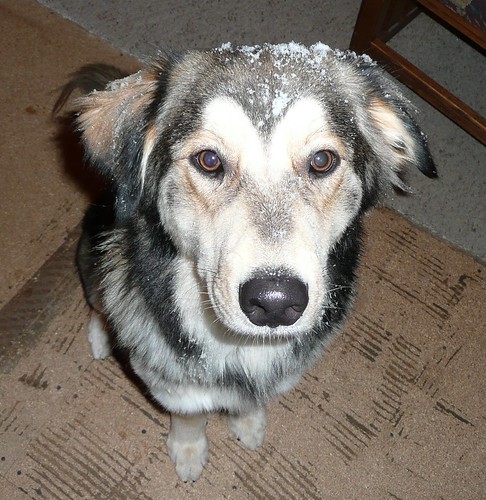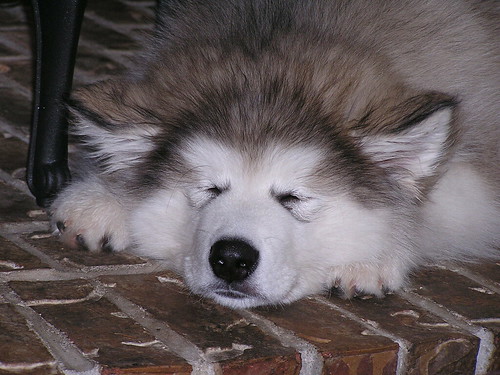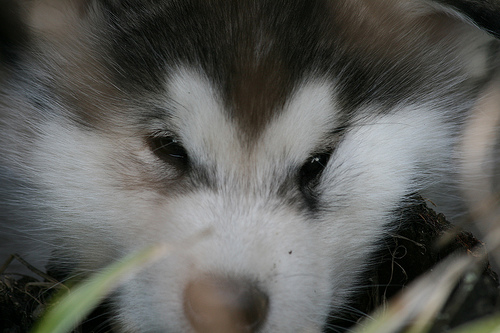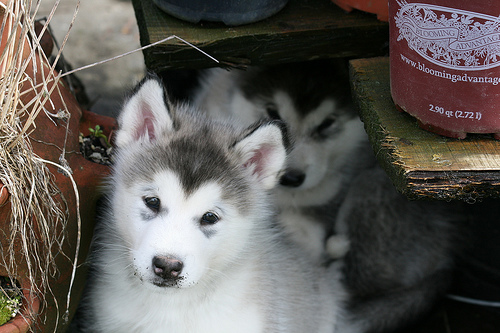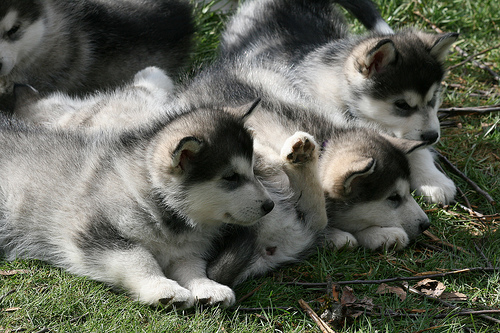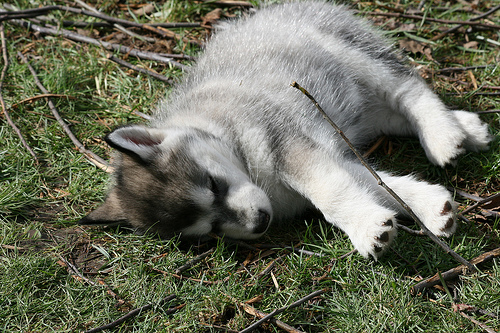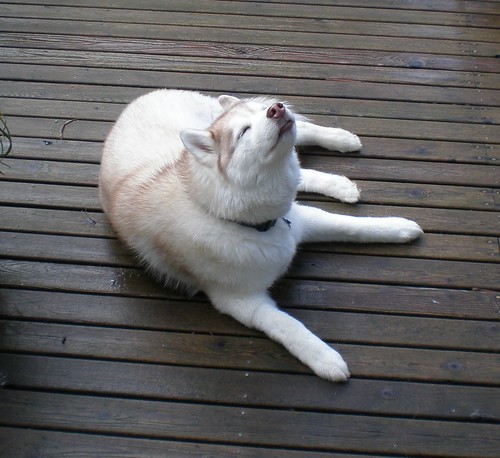Writing about crate training Trooper was very timely. As you might remember, Trooper’s breeder just recently had a new litter and one of the new Malamute mom’s had a question about her new one and the tantrums of being in a crate. I laughed with sympathy and forwarded my post to her. 
So now part two.
The number one thing I can recommend while potty training - PAY ATTENTION. Puppies are really pretty obvious (usually) when they have to go. And the second thing…use treats. 
If your puppy is loose and walking around the house watch them like a hawk. Puppies usually give some very clear clues that they need to go potty…though every puppy is different.
If you are worried about your puppy not being within your line of sight at all times, use a leash. Attach it to your belt or waist and that puppy will stay with you no matter where you go (obviously don’t drag them around *grin*). If you’re sitting on the couch, make him stay within your line of site. If you’re in the kitchen (and you’re going to allow them in the kitchen) have her by your side.
This helps with two different things. First it gives you the opportunity to watch them like a hawk. The second is that it gives the dog the message that they do not have free roam. They can’t go anywhere they want and need to have your permission. Plus it’s a great bonding tool.
Trooper hated it at first but he got used to it (I think it helped us establish our Alpha role as well). We didn’t do this with Kodiak and we had a LOT more puppy potty accidents in the house. We just didn’t watch him closely enough.
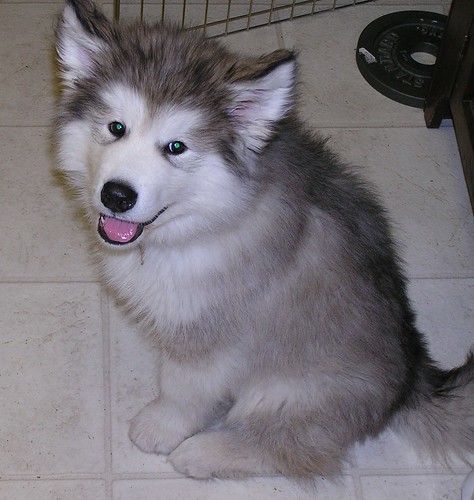
Kodiak gave us plenty of signals, but since he was our first puppy we didn’t always recognize them right away.
Sniffing around or moving in a circle was one of his key alert behaviors. Of course, sniffing is common for puppies because there is a lot of new stuff to smell. But there should be a certain kind of sniffing and moving that your dog does before they go potty.
If we didn’t grab Kodiak and head outside fast enough, sure enough after a few circles he’d be squatting on the floor and doing his business.
If you see your puppy start to squat - grab them quick and run outside. Don’t yell. Don’t punish. They don’t know any better and haven’t learned where they should do their business yet. It is NOT their fault!
We had many interesting trips running from the apartment with our dog upside down in our arms…usually with a stream of pee shooting up! I’m sure our neighbors loved us.
Trooper wasn’t nearly so obvious. He liked to stare. That’s about the only hint he gave. No whining. No barking. He would stare at us for a few minutes or go stand at the back door (once he realized that is where he needed to go) and sit there. If we didn’t realize he was there he’d go right on the rug. It was not fun.
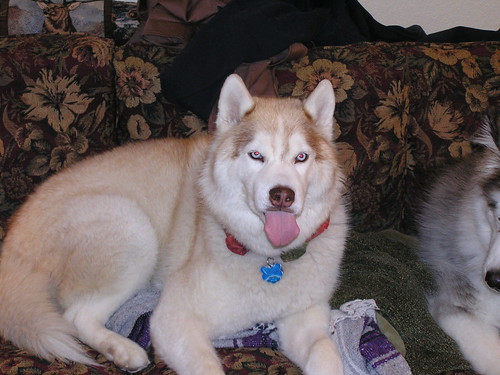
Finally we tied a bell to the back door. Every time we took him out to potty we lifted his paw for him and rang the bell. Pretty soon he got the idea and would ring the bell himself to go outside. Such a smart boy!
He still doesn’t bark or whine (he’ll be 3 in July). He will stare at you deeply (it’s a little unnerving) or just sit by the door. But thankfully he has more control now and doesn’t have accidents in the house. We usually get the message if he stares long enough.
I think most puppies go through a couple of training stages. The first one is when they can’t really control themselves. They’re too young to hold it for very long and if not given the appropriate opportunity to relieve themselves will go wherever they are.
The second stage is when they are a little older, 3-4 months, and do have more control but still don’t “get it” 100%. When they have to go potty they kind of know they’re supposed to go outside but just aren’t sure how to go from A to B.
Encourage your puppy when they go potty outside. My mom thought I was a complete nutter. When Trooper went potty, I’d say over and over again “Good boy go potty” … as he was going. And then he’d immediately get a treat. Going potty outside is FUN!
This encouragement really does help get you to stage three. A little bit older and wiser and able to hold their bladder longer, your puppy KNOWS that it is supposed to go outside and should know how to tell you. But if you ignore the signs too long or if he is left home alone he may have no choice but to go inside.
I think that stage three might be the hardest phase to get over - especially if your dog has to be by themselves for long periods of time. By around six months old Trooper could hold his bladder for at least 6 hours but if we slept in or left him in his crate for longer than that he had accidents.
Again, NOT his fault. Don’t punish or yell because they won’t know why. Just clean up the mess and start over again.
I know that some people use potty training pads but we found those just encouraged the dogs to go in the house (we use them now for Quinn but she is a different situation).
Do you have some good potty training tips? Was it hard to potty train your puppy?
![]() Let’s just say that I’ve had a horrible cold the last few days and with that on top of the pregnancy nausea I have not been in a good mood. Nor have I felt very creative or like writing anything.
Let’s just say that I’ve had a horrible cold the last few days and with that on top of the pregnancy nausea I have not been in a good mood. Nor have I felt very creative or like writing anything.![]()
![]()


